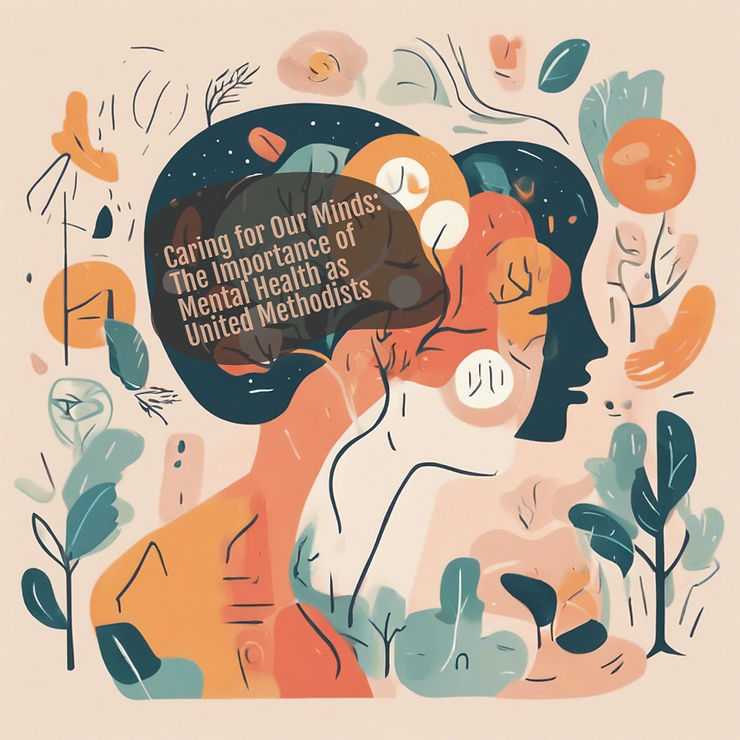Caring for Our Minds: The Importance of Mental Health as United Methodists
- St. Paul's United Methodist Church

- Jun 9, 2024
- 3 min read
Updated: Mar 30

As United Methodists, we are called to care for our bodies, souls, and minds. Yet, mental health is often overlooked, leaving many of us struggling in silence. But the Bible is clear that God cares for our whole being, including our minds. In Psalm 139:13-14, it says, "For it was you who formed my inward parts; you knit me together in my mother's womb. I praise you, for I am fearfully and wonderfully made. Wonderful are your works; that I know very well." This verse reminds us that we are created in God's image, and our minds are a vital part of that creation.
We must prioritize our mental health and wellness, just as we would our physical and spiritual health. We can do this by seeking help when needed, practicing self-care, and fostering a culture of openness and understanding in our communities. By doing so, we can live more fully into the person God created us to be.
Mindfulness is key to living a holistic life, where we attend to each aspect of our being with intention and care.
Often we prioritize one aspect over the others, neglecting the intricate connection between our physical, emotional, and spiritual well-being. Mindfulness is key to living a holistic life, where we attend to each aspect of our being with intention and care. In this journey, we are reminded that our bodies are temples of the Holy Spirit (1 Corinthians 6:19), and as such, we are called to honor and care for them.
In our daily lives, we can cultivate mindfulness by paying attention to our physical needs. This means taking time to nourish our bodies with healthy foods, engaging in regular exercise, and getting sufficient rest. It also means acknowledging and honoring our physical limitations, recognizing that we are not invincible and that self-care is essential. As United Methodists, we are encouraged to prioritize physical health, not just for our own well-being, but also for our ability to serve others with joy and energy.
Mindfulness extends beyond our physical bodies. We must also attend to our minds, acknowledging the emotional and mental struggles we face. As United Methodists, we are called to be people of hope and resilience in the face of adversity. This means being aware of our thought patterns, recognizing when negative thoughts creep in, and replacing them with words of hope and affirmation. We can cultivate mindfulness by practicing gratitude, engaging in activities that bring us joy, and seeking support from loved ones or professionals when needed.
"For it was you who formed my inward parts; you knit me together in my mother's womb. I praise you, for I am fearfully and wonderfully made. Wonderful are your works; that I know very well." - Psalms 139:13-14
We are reminded that our spirits are connected to the divine. We are called to cultivate a sense of awe and wonder at God's creation, and to live in harmony with God's will. Mindfulness allows us to slow down, listen for God's whispers, and respond to the promptings of the Holy Spirit. By attending to our body, mind, and spirit with mindfulness, we can live more fully into the person God created us to be - a person who is whole, healed, and empowered to serve others. As we journey through life as United Methodists, may we prioritize mindfulness as a means of nurturing our whole being - body, mind, and spirit.
Reflect Questions:
How do you prioritize your mental health and wellness?
In what ways do you foster a culture of openness and understanding in your community?
How can you encourage others to prioritize their mental health and seek help when needed?
What scriptures or passages have helped you understand the importance of mental health as a Christian?
How can you practice self-care and mindfulness in your daily life?


Comments